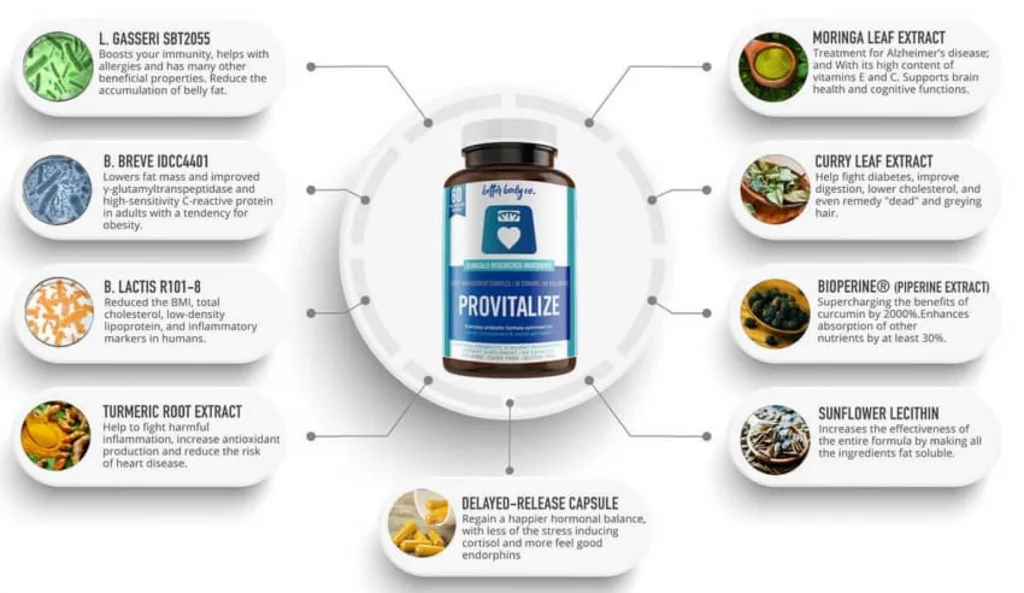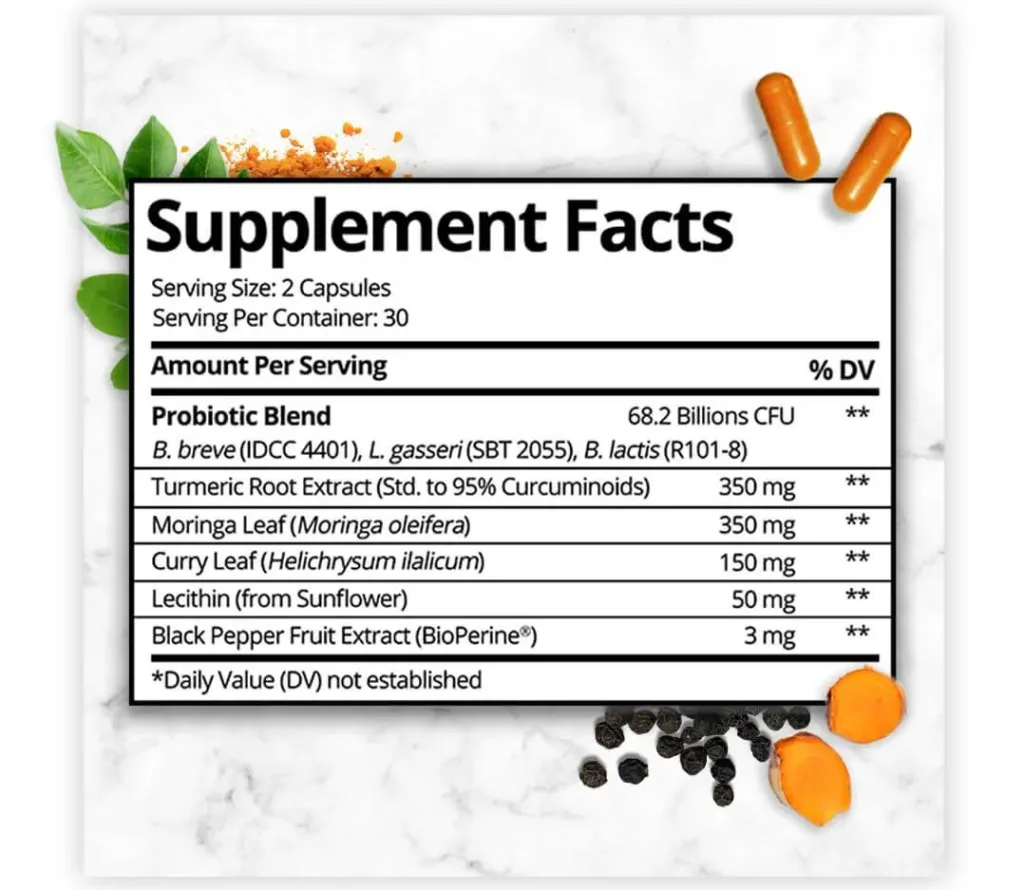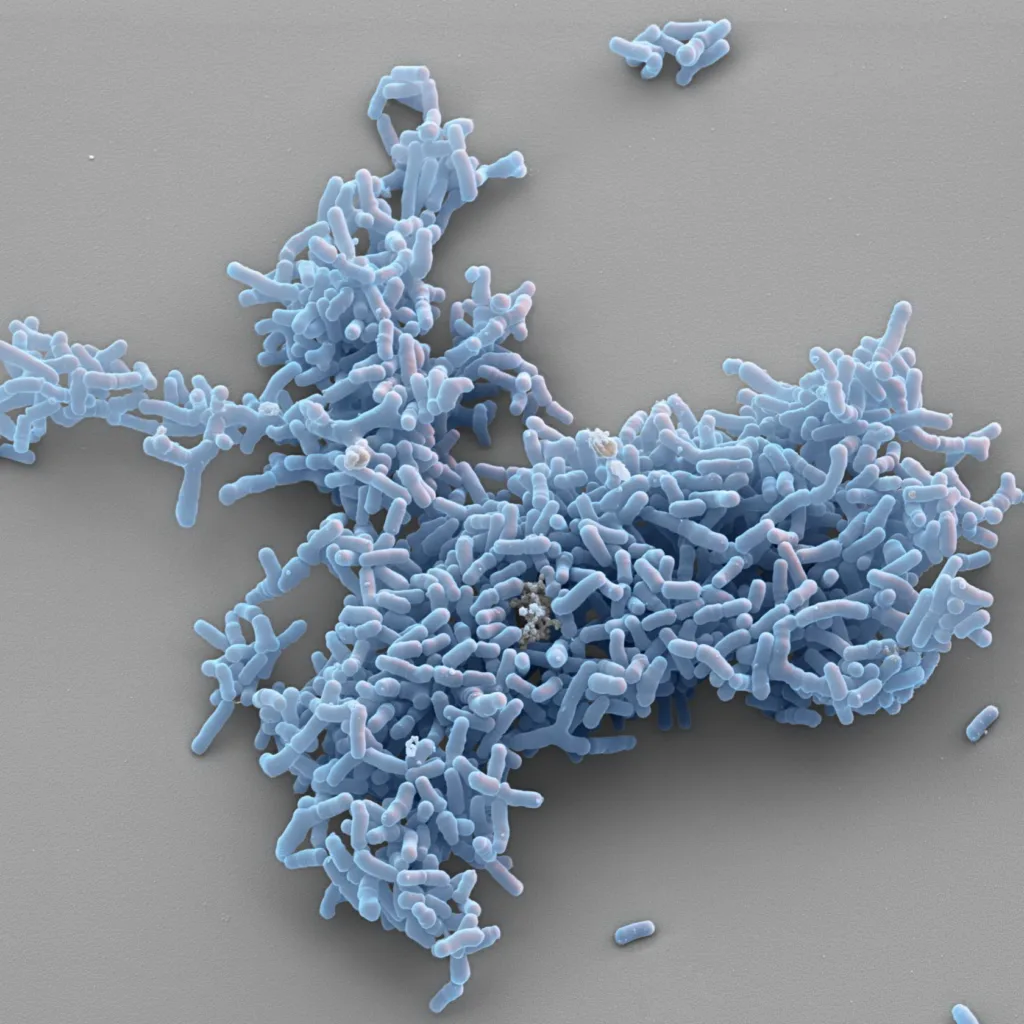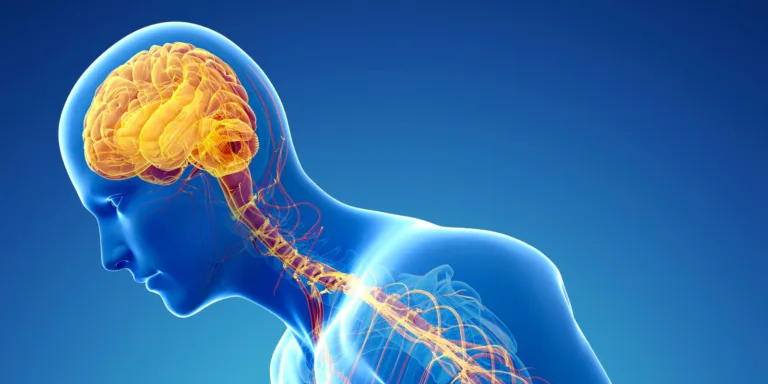PROVITALIZE PROBIOTICS? Are They Effective?
Provitalize probiotics’s main marketing claims stem from the probiotics it contains. It’s supposed to be a “natural” way to lose weight, whatever that’s supposed to mean. When people ask about Provitalize probiotics, the underlying question most people should be asking here is: “Can probiotics help you lose weight?” Well, can they? And do the specific probiotics in Provitalize probiotics do anything special? Let’s take an in-depth look at it for weight loss to see if it’s worth your money and see if we can replicate it with a cheaper alternative, and give it an overall rating.
How probiotics help with weight loss?
Probiotics are a type of good bacteria, and there’s some evidence that certain probiotic
strains are related to obesity and might help with weight loss. But it’s not going to be suppressing your appetite so you eat less and start losing weight right away, kind of help. It’s more like changing the way you metabolize nutrients so it reduces your risk of developing
obesity, kind of help. What it means is that the type of benefits that probiotics typically impart are beneath the surface and not easy to see. They often take effect much slower than most people will be able to notice. These benefits are also highly dependent on the strains that are used, and not all probiotics are created equal.
Provitalize Probiotics Ingredients
So what strain is inside Provitalize? Let’s take a look at the list of ingredients. Ingredients in provitalize include:

Here are the doses per capsule:

The recommended dosing is two at breakfast, so that’s a daily dose of two per day.
Whenever supplements add ingredients to their product, there are three very common issues with many of these ingredients which are as follows:
- The doses are insufficient
- The types of extract they use are ineffective and don’t contain much of the active compounds
- The ingredient itself has not actually shown any beneficial effect in humans.
When we analyze all these ingredients, we’re going to see which of these issues they have.
Probiotic Strains Of Provitalize Probiotics
Let’s first take a look at the probiotic ingredients. Probiotics in Provitalize include:
- B.breve(IDCC 4401)
- L.gasseri(SBT 2055)
- B.lactis(R101-8)
Proprietary blends allow supplement companies to avoid listing the exact amount of each
ingredient within the blend. Sometimes these blends have special names like “Probiotic blend” or “Detox mix” that will list the ingredients within the blend, but not the doses of each ingredient.
You need to be very cautious about proprietary blends. They can list an effective ingredient but only have trace amounts of it and you wouldn’t be able to tell since the dose isn’t listed. It shows a lack of transparency and may indicate a desire to hide inferior ingredients or make an ingredient seem like there’s more inside than there actually is. This is why it’s a good idea to avoid proprietary blends or mixes.
Problems with Provitalize Probiotics
What provitalize probiotics manufacturers have done is combine three different probiotic strains together, and list one quantity, They’ve failed to list the quantity of each probiotic strain, which is important since you need to get enough of a probiotic strain if you want to gain its benefits. It’s like telling someone: “I’m going to give a bunch of pennies and quarters, and there’s going to be 25 coins total.” But then I don’t tell you how much of each coin I give you. It makes a huge difference if I give you 24 pennies and 1 quarter, or 1 penny and 24 quarters.
Looking at the probiotic strains in Provitalize, we have three listed strains. Of the three, only Lactobacillus gasseri has some evidence that it might actually help some people lose weight.
Unfortunately, the effect was typically small and sometimes insignificant, with most people
losing maybe an additional pound every month. Bifidobacterium breve and bifidobacterium lactis don’t cause any weight loss by themselves, however studies found that they had some benefits that supported the health of those with obesity, like helping to improve fat composition or reducing inflammation, but these beneficial effects did not reliably translate to any additional weight being lost.
Unfortunately, we cannot say if this supplement will even have the small and sometimes insignificant weight loss that Lactobacillus gasseri may impart since we don’t know how much of
the mix is that specific strain. For all we know, 95% of it could be one of the other strains, and we won’t even know.
Non-Probiotic Components of Provitalize Effectiveness?
Beyond the probiotics, there isn’t really anything else in Provitalize that’s substantial
for weight loss. Turmeric and lecithin have been studied for helping to reduce inflammation or cholesterol. Turmeric and lecithin levels, are things that are related to obesity but aren’t going to be helping you lose weight. Even then, the doses used in studies are measured in grams per day, the tiny amounts you’re getting in Provitalize probiotics aren’t going to do anything. For example, there is some weak evidence to suggest that turmeric might help reduce inflammation
in those with obesity. However, the effective doses used in those trials were 1000 mg per day or above. The 350 mg per day Provitalize probiotics provides is just not going to cut it.
Moringa and curry leaves are really only known for their traditional uses, meaning that they
were used by herbalists and holistic healers back in the day but currently lack much evidence-based research. Their traditional uses include glucose control and reducing inflammation.
There isn’t really any evidence that they actually help with those things, so it will be hard to determine their effectiveness, if any. Even then, herbalists typically used 10 to 100 grams of these ground-up leaves, not a few hundred milligrams as Provitalize probiotics use.
BioPerine is a standardized pepper extract and in this case, it’s used to help improve the absorption of some of the other ingredients, but otherwise, it has no therapeutic effects.
That being said, these ingredients, albeit not very useful, are relatively safe to use.
Side Effects of Provitalize Probiotics
There aren’t any major concerns from any of the listed ingredients, and assuming they don’t have any contamination issues or secretly put any illegal ingredients inside, only the probiotics may have some mild side effects in people. Probiotics can sometimes cause mild gas and bloating in people who first start taking them, especially at high doses, as their body gets used to having new gut bacteria introduced into their gut. Sometimes it also causes some mild constipation or diarrhea, but it’s usually temporary as your body gets used to it.
Is Provitalize effective for weight loss?
Is provitalize probiotics effective? It’s likely not going to be much more effective than any general probiotic supplement. Probiotics mainly help to support healthy weight loss for some people but are not going to make you lose weight by itself. This means you shouldn’t expect to lose weight by taking Provitalize, nor will it help you to eat less, or exercise more. Rather, its effects, if any, will likely be much more subtle, potentially helping to improve your gut flora. Whether it actually helps your gut will likely depend on your existing gut flora, so if you don’t have many gastrointestinal or health issues, and eat a healthy diet full of variety, it’ll probably have little to no benefits for you.
Does Provitalize Probiotics work? Is Provitalize a good probiotic?

Overall, Provitalize probiotics is not much more than an overpriced probiotic. At a cost of $50 per month, Provitalize is pretty expensive. A generic Lactobacillus gasseri probiotic supplement can be purchased closer to $5 a month, and if your main goal is just weight loss, that’s probably good enough. But if you wanted to add on another generic multi-strain probiotic, it would be another $10 per month. You could then supplement what Provitalize essentially provides you, but even better, for around $15 a month.
Overall rating of Provitalize Probiotics
Rating Provitalize by effectiveness for weight loss, we can give it a D. It basically works like any multi-strain probiotic to support healthy weight loss. It’s not really going to help you lose more weight but it may help support your gut during weight loss. Rating it by cost, we can give it a D again. It can be essentially replicated by getting individual probiotics at a cost of approximately 3-4 times less. Rating it for safety, we can give it a B. Probiotics are relatively safe to take, and
any gas and bloating you experience will likely be mild and temporary. The overall rating is a D.
Meno Vs Provitalize.Provitalize Probiotics for menopause

Price Difference
The main difference between them is the pricing of making a one-time purchase of provitalize probiotics which will cost forty-nine dollars for a 30-day Supply however you can save by subscribing to this supplement since it costs 41.65 with a subscription two bottles cost 98 dollars
while three bottles go for 120 dollars. Meno is cheaper since making a one-time purchase of this supplement will cost you you’ll pay 34.99 you can also buy two bottles at 75 or three bottles at a
hundred and eight dollars therefore Meno is a more suitable option if you wanna save more.
Nutritional Value
These two supplements also use completely different ingredients to offer menopause relief. Meno has five ingredients(black cohosh, ashwagandha, KSM-66, chaste berry,Vitamin D3 and B6)
Provitalize probiotic contains nine ingredients(L. gasseri, B.breve, B.lactis, turmeric, Moringa Leaf extract, Curry leaf extract, sunflower Lecithin,delayed-release capsules, BioPerine. While both Provitalize probiotics and Meno control weight gain, hot flashes, and bloating, Provitalize has an
edge since it offers more health benefits not found in Meno like supporting gut health, enhancing absorption rate, and regulating blood sugar. Due to the higher number of ingredients and health benefits of provitalize probiotics, it has higher nutritional value
How fast do they work?
Provitalize Probiotics Works faster since you may start feeling its effects within six weeks of use. Some users also report feeling better after two weeks of taking provitalize, Meno Works slowly since its effects are often experienced within 8 to 12 weeks therefore provitalize delivers faster relief but do they have any similarities? Yes! they are both vegan, paleo, and keto-friendly therefore they accommodate people on different diets. Since they’re both made with natural and
hormone-free ingredients that’s why they’re safe to consume.
Provitalize Probiotics for Weight Loss Reviews
So is it really effective? Does it help reduce menopause symptoms, regulate metabolism, and lose weight? Or is it actually a scam, as some people claim? let’s begin with a quick overview of this supplement to see if it makes a good option or not. Shortly, Provitalize probiotic is a supplement designed to reduce menopause symptoms, as well as promote weight loss. It basically claims to help with sweats, hot flashes, mood swings, and any other symptoms that are common in menopause, as well as weight loss. And since it’s a probiotic, it’s also designed for digestive and gut issues as well.
However, if you dig deeper into this product, you will find a couple of question signs. For instance, its formula is based on only 3 probiotics, but their dose is extremely high. So we can say it’s suitable for someone dealing with a serious lack of good gut bacteria.
Provitalize Probiotics Ingredients Analysis
Let’s dig even deeper into Provitalize by taking a look at its ingredients. Provitalize probiotics don’t have a bad composition at first sight. It combines probiotics with herbs and it comes with a unique formula. But if you take a closer look, it gets a lot worse. As already said, this product only contains 3 bacterial strains, which is quite low for a probiotic. Besides, its weight-loss benefits are rather insignificant, because the 3 strains it contains don’t have a lot to do with reducing weight.
But that’s not even the biggest problem – instead, it’s the dosage. It has a huge amount of probiotics/serving (68 billion CFU), which means a really high risk of side effects. In other words, its dosage is way too high for a long-term supplement. It is actually recommended to use such high doses for people with a lack of good bacteria. However, they should only be taken for about a month, until the body recovers, because if they’re taken for longer, they tend to cause a lot of digestive issues (like bloating). That’s why a lot of people don’t consider Provitalize as a long-term product.
When it comes to daily use of probiotics, It is recommended to use a dose of 5-10 billion CFU. Anything that is above tends to cause side effects very often. Provitalize contains almost 7 times more. There are 3 strains inside it, there are 2 types of Bifidobacterium and one Lactobacillus. Now these 3 strains are surely potent and effective. But they are too little, not to mention that they’re not specifically meant for weight loss. Their main benefits don’t include anything related to metabolism and weight.
Non-Probiotic Components Of Provitalize
As for the second group, it’s made of herbal extracts and there are 5 compounds of this type in Provitalize: Turmeric Root Extract, Moringa Leaf, Curry Leaf, Lecithin, and BioPerine. Basically – only 3 out of these help in terms of weight loss, not even those 3 ingredients seem very potent. So all in all, Provitalize does have a unique formula, but it’s both potentially dangerous and not very effective in terms of weight loss and menopause symptoms.
This supplement is formulated as vegetable capsules and one would say that they look
exactly like turmeric pills, with a transparent cover with orange powder and some average
dimensions. Obviously, swallowing this kind of pill is pretty easy. According to its label,
Provitalize probiotics require 2 pills/day and it’s recommended to take both capsules together. Now, probiotics usually work best when taken on an empty stomach. But in some cases,
you may develop some stomach cramps, so if that’s the case, just switch to taking them after eating.
Customer Reviews of Provitalize Probiotics
In order to see how Provitalize probiotics works, let’s try to look over its customer opinions. Now, this product has some user reviews both on its website and on retailers. However, the difference is pretty significant: most of its website reviews are highly positive, while its reviews on retailers are rather mixed up.
For this reason, we should only consider its reviews from 3rd party sellers (specifically Amazon). Some people say it’s not amazing but it does its job. Others praise it as a probiotic. A few others claim it works amazingly for bloating. Now, this product seems to work pretty well for enough people. However, most of its praises are related to its probiotic effect. When it comes to menopause symptoms, it doesn’t seem so impressive.
But the most important part about its user feedback is its complaints. That’s because most of its 1st page Amazon reviews are highly negative. Many users complain that it doesn’t work. Others say it didn’t relieve their menopause symptoms. A few others criticize its very high price. Some say it’s not worth buying, since it doesn’t work too well. Others even complain about side effects.
Judging after all these complaints, we cannot trust Provitalize too much. Most of its complaints are related to its poor weight loss effect and menopause improvement. So from these points of view, it doesn’t seem like an excellent choice.
Harmful Effects of Provitalize Probiotics
Provitalize seems to cause some pretty ironic side effects – bloating and weight gain. In other
words – it actually worsens the symptoms it’s supposed to treat. Obviously, this doesn’t happen
in all cases. But there were many complaints from users who actually gained some weight while using it. Other than that, it also causes some reactions that have nothing to do with its promises, like diarrhea, anal leakage, or irritations. So in terms of safety, it doesn’t look like the best probiotic out there (nor like the best weight loss solution).
What are The Best Probiotics For Your Gut?
The bacteria in your gut are linked to so many aspects of your health, including obesity and weight loss. Different types of probiotics can influence your metabolism, but what are these specific probiotic strains, and are there probiotic strains that can help, or hurt, your weight
loss progress? There absolutely is, and we’re going to summarize the mountains of research on many different probiotic strains, to list out which strains are best for weight loss.
How probiotics help with weight loss
Before we get into which strains are beneficial, it’s important you first understand how probiotics interact with your body, so you know what kind of benefits you can expect. Our intestines hold billions of bacteria. The good bacteria do things to keep our body healthy like help to break down our food and generate nutrients for us to use. The bad bacteria do things like create too much gas, or generate inflammatory chemicals. Probiotics are a type of good bacteria, and there’s some evidence that certain probiotic strains are related to obesity, and might help with weight loss.
So while a lot of research has associated certain bacteria in our intestines with all
kinds of medical issues, from cancer to dementia, to obesity, these associations are generally
made with the understanding that if these bacteria are beneficial, it would likely have
to be years of these bacteria acting on the body to possibly provide some benefit.
For example, we know that some probiotic bacteria help us to metabolize certain foods better
and reduce inflammation, both things that are related to obesity.
But would taking additional healthy bacteria as a probiotic actually cause any noticeable
weight loss? Or is it just going to support your weight loss, but not really cause you to lose weight itself? Of course, both will be helpful, but just keep in mind that when some people say probiotics are helpful, they often mean the latter, even though some people might expect the former. So you may be wondering if there are any probiotics that cause noticeable effects on weight loss, and there are, but most of them are going to fall into the “support” weight loss
category.
With that in mind, let’s take a look at a well-researched group of probiotics known
Lactobacillus probiotics
Lactobacillus Probiotics

The strain found to most consistently cause weight loss was Lactobacillus gasseri. Even though the effect was typically small, and sometimes insignificant, this effect has been shown in humans, making it one of the few probiotics that has demonstrable evidence for weight loss. The next few are Lactobacillus plantarum, Lactobacillus rhamnosus, and Lactobacillus casei, all of which mostly caused improvements in obesity-related measures like reducing inflammation or improving fat composition, but also found some weight loss when used with a proper diet. However, these strains were often combined with other strains, so it can be hard to figure out how much effect the individual strain is having on health.
Very likely, these strains only support dietary weight loss efforts, and may not have much effect when used by itself. Some other less common strains of note were Lactobacillus amylovorus, Lactobacillus sakei, and Lactobacillus curvatus, all of which were studied for their potential to help with obesity. But not a lot of research is available on them and we unfortunately don’t have very clear evidence that it will be useful for humans.
Lactobacillus acidophilus, one of the most common strains of lactobacillus, does not seem to show any noticeable effects on weight by itself. In fact, some research suggests it might cause weight gain, however a lot of the research mixes acidophilus with so many other probiotic strains it can be hard to figure out what effect, if any, it’s having on the body. If it is having beneficial effects on weight, it likely only supports a healthy metabolism.
| Strains | Evidence for weight loss | Cause/Support |
|---|---|---|
| L. gasseri | ++++ | cause |
| L. plantarum | ++ | support |
| L. rhamnosus | ++ | support |
| L. casei | ++ | support |
| L. amylovorus | + | support |
| L. sakei | + | support |
| L. curvatus | + | support |
Bifidobacterium Probiotics

Another highly researched group of probiotics is known as Bifidobacterium. No strain really stands out amongst the Bifidobacterium, and many of them likely only support healthy weight loss, rather than cause it. Bifidobacterium breve and Bifidobacterium lactis, seem to show up quite a lot in research. A lot of it is combined with other probiotics, and much of the research is only in mice, but some strains may be able to help improve fat composition and support weight loss. Other strains like Bifidobacterium bifidum and Bifidobacterium longum also seem to support weight loss by improving obesity-related measures like high cholesterol or inflammation but likely don’t show any actual weight loss by themselves. They’re also almost always used in combination with many other probiotics, making it difficult to determine if these particular strains are actually useful.
Other than probiotics in the lactobacillus and bifidobacterium groups, information about other
other probiotics is not quite as plentiful. Some other probiotics of note are Akkermansia muciniphila, Pediococcus pentosaceus, Saccharomyces boulardii, and Bacteroides uniformis, all of which have interesting effects related to helping reduce obesity and potentially being useful for weight loss, but have yet to show any weight loss effects, especially in humans.
| Strains | Evidence for weight loss | Cause/Support |
|---|---|---|
| B. breve | ++ | support |
| B. lactis | ++ | support |
| B. bifidum | + | support |
| B. longum | + | support |
How to use probiotics for weight loss
So the vast majority of probiotic strains are supportive of healthy weight loss, meaning taking them without doing anything else is not likely going to have any effect on your weight. However, using them while on a proper weight-loss diet can help your metabolism and improve your gut health.
Will it increase the amount of weight you lose?
It’s really hard to say, and most evidence would suggest that it probably doesn’t, at least not significantly. However, it could make it easier to maintain your weight, help you to lose weight a little faster, or improve other problems related to obesity like improving cholesterol levels or reducing inflammation, great things to have if you’re already following a healthy weight loss protocol. But don’t expect it to have a significant impact on your actual weight. Even with L. gasseri strains, the magnitude of weight loss is not very large, and you might not even notice it. Research studies on this specific probiotic show that people typically lose around 1 kg or about 2 and a half pounds in 12 weeks. That’s not very impressive!
How much Dose of Probiotics is Required?
Combining different strains might be more effective, regardless, make sure you have a good dose of any probiotic you plan to take for therapeutic purposes. Probiotics are measured in Colony Forming Units or CFUs. One CFU basically means a single viable bacteria that is able to multiply itself and form a colony. So having 1 billion CFUs means it has 1 billion bacteria that are able to form colonies. Probiotics are typically measured in the billions of CFU per dose, and anything less may not even reach your gut, since oral probiotics need to bypass and survive your harsh stomach acid before getting into the intestines.
At the end of the day, make sure you set the proper expectations before you start spending a lot of money on probiotics for weight loss. Understand that probiotics are a great supportive tool for healthy weight loss, but are not likely going to be the “magic pill” that starts helping you to lose weight. That is still up to you.
Conclusion
So what is the overall final opinion on Provitalize – is it worth buying or not? The answer is Not really. It’s surely not a terrible supplement, nor a scam – but it has a lot of serious issues. It doesn’t work very well for weight loss, it can actually boost weight gain in some people. There are many complaints from previous users and it’s quite pricey for its value. Now, it’s up to you whether you want to give it a try or not. But we pretty much doubt it’s going to help you lose weight – even in the short run. Not to mention that it can actually really harm your gut.
If you want to check your Body mass index feel free to check out our BMI calculator. I hope it helps!!






